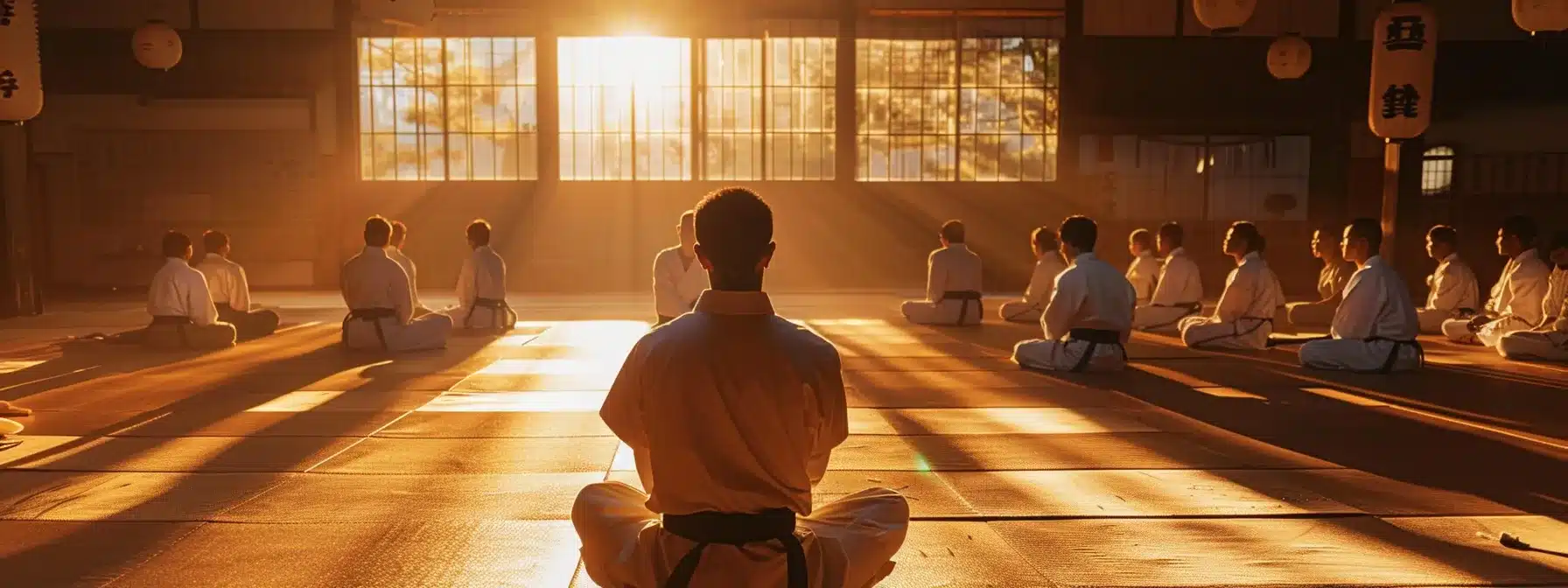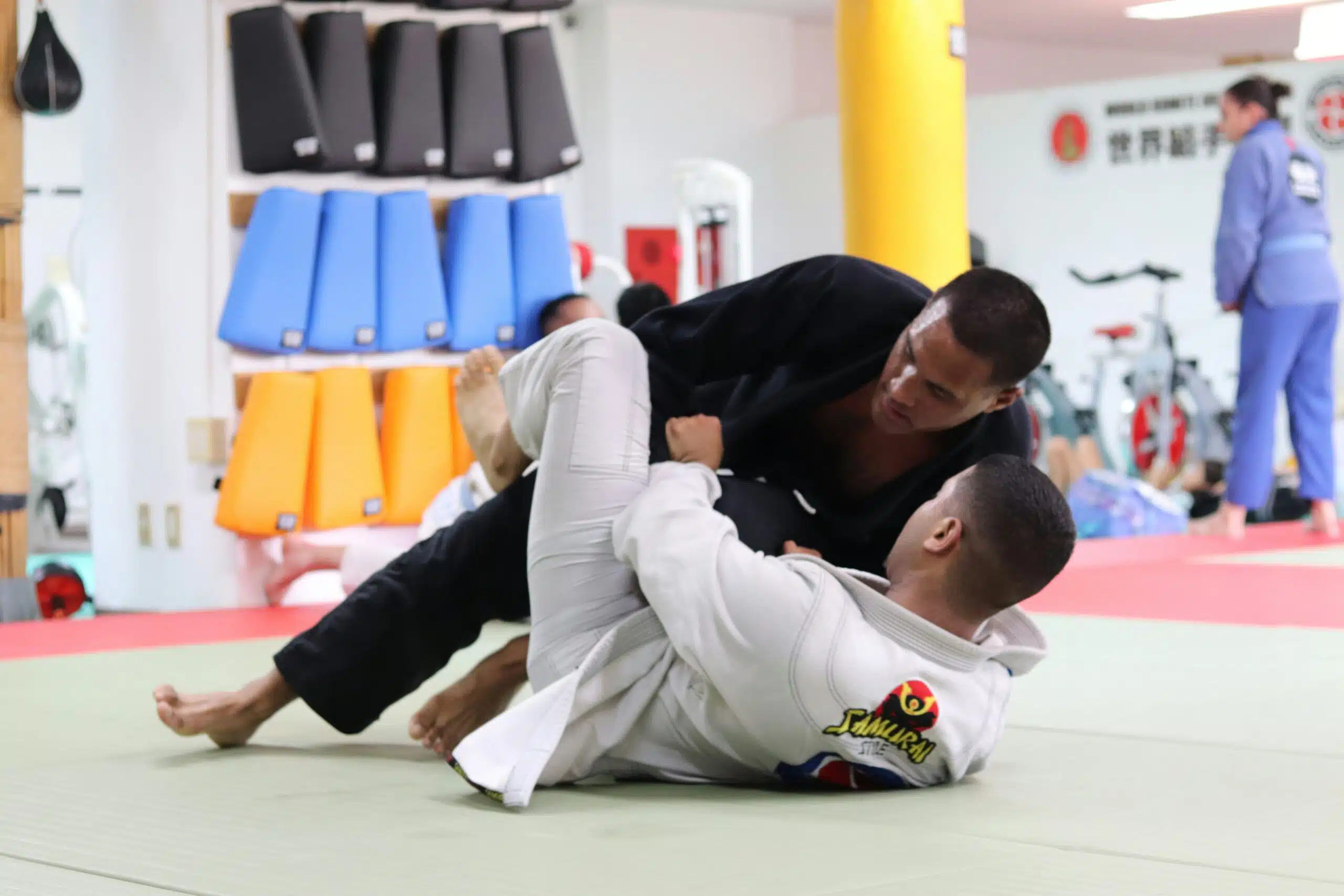Have martial arts school owners ever felt that their martial arts school operations could run more smoothly but are unsure how to make that happen? This article reveals top strategies for enhancing customer service efficiency, utilizing knowledge to streamline facilities services, and handling emergency management like a professional. Learn how martial arts business coaching can be the key resource needed to resolve operational challenges, allowing owners to focus on growing their businesses. By the end of this read, it will be clear how a tailored approach to business coaching can transform the day-to-day running of a school, making life easier and boosting the bottom line.
Key Takeaways
- Business coaching tailors strategies to optimize martial arts school operations and unique needs.
- Implementing software and digital tools streamlines administration, freeing up time to focus on training.
- Regular assessments and setting realistic goals are crucial for continuous improvement and growth.
- Integrating data analytics into school operations offers clear insights and aids informed decision-making.
- Cultivating a culture of feedback and innovation is key to maintaining a vibrant and efficient martial arts school.
Introduction to Martial Arts Business Coaching and Its Impact on Efficiency

Many martial arts school owners seek ways to improve their school operations and increase efficiency. Imagine a school as a well-oiled machine where every part works perfectly in sync—that’s what effective business coaching can help achieve. This article explores various aspects of operations, such as classroom design and safety procedures, that can benefit from the right guidance. Additionally, it measures the improvements to demonstrate how much smoother martial arts school operations can run. By delving into business coaching strategies, owners can see real changes in their school’s performance, ensuring their martial arts school is efficient, smart, and always improving.
Understanding the Role of Business Coaching in Martial Arts Schools
Business coaching plays a crucial role in improving martial arts school operations. It is akin to having a master’s in the art of school management. Just as in martial arts, where the combination of science and experience leads to mastery, the right coach can refine customer service, streamline class construction, and enhance the overall hospitality within the school. Understanding the unique needs of the school and applying tried-and-true principles creates an experience where students and staff can thrive. With a business coach, school owners can see firsthand how targeted strategies lead to better efficiency and greater satisfaction for everyone walking through the doors.
Key Areas of Operations Improved by Coaching
Bringing in a martial arts business coach can dramatically transform several key areas of martial arts school operations. From strategizing tax benefits to enhancing the roles of team members, like a chief operations officer, their insights are invaluable. Coaches can even help improve the ambiance of the school by advising on efficient lighting—all changes that free up more time for owners to focus on imparting knowledge to their students.
Here’s a quick rundown of these improvements:
- Streamlined tax handling for better financial health.
- Empowered staff with clear roles and responsibilities akin to a chief operations officer.
- Optimized lighting systems for a better learning environment.
Measuring the Impact: Efficiency Before and After Coaching
The difference can be significant after adopting business coaching strategies in martial arts school operations. For example, by refining marketing strategies, schools can save on advertising costs while seeing local community engagement skyrocket. It’s not just the art of marketing; it’s also about leveraging technology to streamline class scheduling and enhance the learning experience. Over time, the efficiency gains become obvious: reduced administrative time allows instructors to dedicate more time to what they love—creating exciting new class plans and perfecting the art of teaching.
Top Strategies for Maximizing Operational Efficiency in Martial Arts Schools

Now, let’s delve into effective strategies for making martial arts school operations run smoothly. This includes streamlining administrative work, implementing effective student management systems, adopting financial management best practices, and enhancing communication within the dojo. Each topic is like a technique in the martial arts arsenal, from reducing time-consuming office tasks to upgrading the school’s communication style. When considering renovations or updating school policies, these strategies are essential. Fostering community engagement can also make a significant difference. These tactics have proven effective in numerous martial arts schools, enhancing their operations significantly.
Streamlining Administrative Processes
Streamlining administrative processes starts with reducing paperwork and embracing digital systems. By using intuitive software, schools can manage budgets with precision. Health and education records, previously buried under stacks of paper, are digitized for easy access. This safeguards against risks and allows more time focused on training and student progress—a win for everyone involved in martial arts school operations.
Implementing Effective Student Management Systems
Implementing effective student management systems becomes a game-changer for a school’s infrastructure. By incorporating the latest research on student engagement, processes can be upgraded to focus more on the mat and less on paperwork. For instance, integrating digital solutions into event planning allows parents to pre-order items for events, simplifying logistics and improving satisfaction. This shift streamlines administrative duties and results in more time for hands-on training and personalized instruction, enhancing the overall learning experience for every student involved in martial arts school operations.
Adopting Financial Management Best Practices for Martial Arts Schools
Adopting financial management best practices is key to the health and sustainability of martial arts schools. Focusing on a strategic plan for the school’s finances involves assessing where every dollar goes and discovering ways to maximize returns, such as optimizing energy usage to reduce costs or investing in staff training to ensure high-quality instruction that keeps students returning. Handling finances with the same care as students’ martial arts education allows the school to thrive on a stable economic foundation.
Enhancing Communication Channels Within the School
Enhancing communication within the dojo can draw inspiration from the hospitality industry. By adopting best practices, the school’s services become more than just a menu—they become an experience. Implementing systems to gather feedback efficiently helps better understand the community’s needs and preferences. This direct communication allows for quick adaptation, whether it’s about renovation decisions, tweaking class offerings, or improving school operations.
How to Choose the Right Business Coach for Your Martial Arts School

Choosing the right business coach can significantly impact martial arts school operations. With the right qualifications and experience, a coach can understand the specific needs of a school and help set clear, realistic goals. The following sections outline key areas to ensure finding the right fit to drive efficiency and growth.
Qualifications and Experience to Look For
The right business coach should have a blend of robust qualifications and real-world experience. Look for someone with a track record in both martial arts and business management—ideally, they have run a successful school and can share insights from their journey:
- Solid educational background in business or a related field.
- Proven experience in martial arts school operations and growth.
- Understanding of modern marketing strategies and financial management.
This combination ensures they have the expertise to oversee improvements in areas from student recruitment to financial health and tailoring advice to the niche industry.
Understanding the Specific Needs of Your Martial Arts School
Finding a coach who truly understands what the school is about is essential. This means finding someone with business acumen and a keen understanding of martial arts culture and the specific challenges faced, like keeping students engaged or finding the best ways to advertise classes. A coach who can look at the unique setup and tailor their advice provides a strategy specifically crafted for the school’s success.
Setting Goals and Expectations for Business Coaching
Setting clear goals and expectations is pivotal for meaningful growth and efficiency. Ensuring that efficiency improvements in martial arts school operations align with the long-term vision is crucial. Together with the coach, tangible objectives can be laid out:
- Optimize class schedules for better student engagement and time management.
- Develop marketing strategies to expand the school’s community reach.
- Implement financial planning techniques to bolster economic stability.
This collaborative approach allows for head-on tackling of needs and creating tailor-made strategies that address unique challenges.
The Integration of Technology in Martial Arts School Operations

The power of technology cannot be ignored in the journey to enhance efficiency. Leveraging software solutions transforms the intricacies of school management. Digital marketing plays a significant role in attracting new students, and data analytics provide insights into growth and pinpoint areas for improvement. These technological advancements are game-changers for daily martial arts school operations.
Leveraging Software Solutions for School Management
Adopting software solutions for managing attendance, billing, and other administrative tasks unlocks a new efficiency level. These systems make it user-friendly to keep track of students’ progress and financials, allowing more time for teaching. Embracing this technology simplifies administrative tasks and provides a clear view of school operations, enabling practical real-time adjustments for optimal performance.
The Role of Digital Marketing in Attracting Students
Enhancing a martial arts school’s online presence pays off significantly. Digital marketing becomes a lifeline to prospective students. Crafting engaging social media posts and optimizing the website for search engines opens the doors to increased interest and enrollment. A well-planned digital marketing strategy is powerful in attracting and retaining students and turning online visitors into dedicated learners on the mats.
Data Analytics for Measuring Growth and Efficiency
Integrating data analytics brings clarity to measuring growth and improving efficiency. Harnessing this technology allows for precise identification of areas needing improvement. With real-time statistics on student enrollments, retention rates, and financial trends, decisions become data-driven and accurate.
Steps using data analytics as a roadmap to success:
- Evaluating student attendance patterns to optimize class schedules.
- Tracking financial health monthly to adjust budgeting and pricing.
- Measuring marketing campaign performance to invest wisely in future promotions.
Long-Term Planning and Continuous Improvement With Martial Arts Business Coaching

Embarking on long-term planning and striving for continuous improvement is vital in keeping martial arts school operations both efficient and ahead of the curve. Setting realistic goals challenges growth and smooth operation. Regularly assessing every part of operations and fostering a workplace culture that embraces continuous improvement are essential strategies.
Setting Realistic Goals for Growth and Efficiency
Setting realistic goals with a business coach is pivotal for meaningful growth and efficiency. Focusing on achievable targets, such as increasing student retention by a specific percentage or reducing operational costs without compromising training quality, keeps the school on track for success and allows for steady, sustainable progress.
Regularly Assessing Operational Processes
Regular assessments of operational processes become a cornerstone of growth. Reviewing strategies and systems often reveals fresh ways to enhance class efficiencies and streamline administrative tasks. This ongoing evaluation keeps operations in prime condition and directly addresses the evolving needs of students and instructors, ensuring the school remains dynamic for learning and growth.
Fostering a Culture of Continuous Improvement
Fostering a culture of continuous improvement means constantly seeking ways to refine operations and teaching methods. With guidance from martial arts business coaching, keeping the whole team involved in the innovation process ensures every voice is valued. This hands-on approach boosts efficiency and nurtures a vibrant and dedicated community within the school, where everyone strives for excellence daily.
Implementing continuous improvement:
- Welcoming feedback from students and staff to identify areas for growth.
- Regularly refining operational practices to enhance efficiency.
- Holding frequent training sessions to keep teaching methods fresh and effective.
Conclusion
Business coaching is essential in transforming martial arts school operations into more efficient and profitable endeavors. From streamlining administrative tasks to harnessing digital tools, a coach guides owners through impactful strategies that enhance every aspect of school management. By setting focused goals and fostering a culture of continuous improvement, schools meet current challenges and prepare for future growth. Investing in the expertise of a business coach is a critical step toward ensuring a martial arts school can thrive in a competitive market, ultimately benefiting the entire martial arts community.


